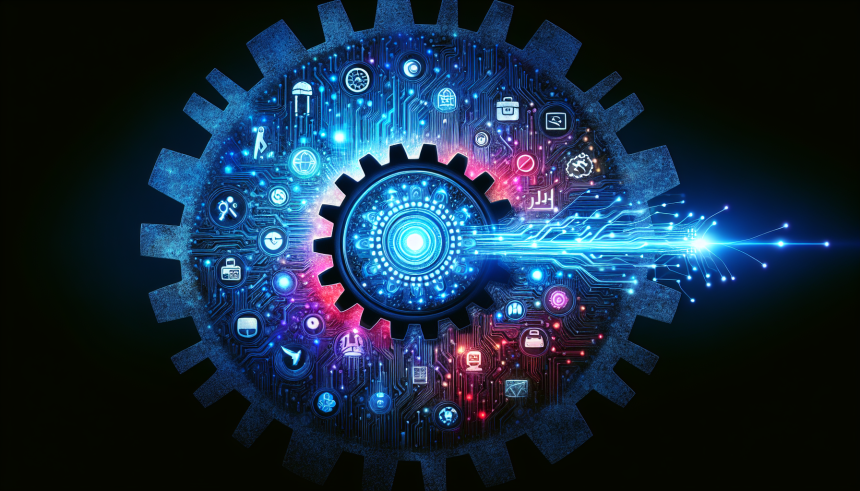The Impact of AI on Job Markets: Trends and Predictions
Understanding AI and Its Potential
Artificial Intelligence (AI) refers to the simulation of human intelligence processes by machines, especially computer systems. These processes include learning (the acquisition of information and rules for using it), reasoning (using rules to reach approximate or definite conclusions), and self-correction. The evolution of AI technologies—from machine learning to natural language processing—has created a ripple effect across industries, influencing job markets globally.
Current Trends Influencing Job Markets
-
Automation of Routine Jobs
One of the most apparent effects of AI on job markets is the automation of routine and manual jobs. Industries such as manufacturing, retail, and logistics have already seen significant transformations. Robots and automated systems perform repetitive tasks, leading to increased efficiency and reduced labor costs. This shift, while beneficial for productivity, raises concerns over job displacement for low-skilled workers.
-
Augmentation of White-Collar Jobs
Contrary to the notion that AI solely displaces jobs, it also augments many white-collar positions. Professionals in fields like finance, healthcare, and marketing use AI tools for data analysis, predictive analytics, and decision-making processes. This augmentation allows for faster, data-driven decisions, ultimately leading to job creation in oversight and management roles focused on AI systems.
-
Emergence of New Job Categories
The rise of AI technologies creates new job categories that didn’t exist previously. Roles such as AI trainers, ethicists, and data scientists are becoming increasingly essential. Companies are actively seeking talent with skills in machine learning, data analytics, and AI ethics, emphasizing the need for a workforce that is versatile and capable of adapting to technological advancements.
-
Shift Towards Remote Work
The COVID-19 pandemic accelerated the trend of remote work, with AI facilitating this transition. Tools powered by AI—like chatbots for customer service and software for remote collaboration—enable businesses to operate efficiently from various locations. This shift not only changes where people work but also expands access to a wider talent pool regardless of geographic location.
-
Enhanced Skill Requirements
As AI applications gain prominence, the demand for specialized skills rises. Workers in all areas are required to develop technical skills, particularly in data analysis, machine learning, and AI management. Furthermore, soft skills such as critical thinking, creativity, and emotional intelligence become increasingly important, as these are areas where AI falls short.
Regional Variations in Job Market Impact
-
Developed vs. Developing Nations
In developed nations, the integration of AI often leads to job displacement in lower-skilled positions, while simultaneously fostering innovation and job creation within tech-driven sectors. Conversely, developing nations may experience a different dynamic, as labor-intensive jobs are more susceptible to automation, potentially exacerbating unemployment rates. However, the introduction of AI and technology can also provide new educational resources and entrepreneurial opportunities.
-
Industry-Specific Effects
Different industries experience AI’s impact uniquely. For instance, healthcare workers utilize AI for improved diagnostics and personalized treatments, potentially creating more roles in healthcare technology. In contrast, sectors like hospitality may see significant reductions in labor due to automation in customer service and operational tasks.
Productivity and Economic Growth
AI’s integration into business processes boosts productivity, driving economic growth. Companies adopting AI technologies report enhanced operational efficiency, reduced costs, and the ability to scale services rapidly. This increased productivity can lead to more competitive businesses and might result in the creation of more jobs as companies expand their operations.
Societal Implications and Ethical Considerations
The accelerated pace of AI adoption brings numerous ethical challenges. Issues surrounding data privacy, algorithmic bias, and the need for transparent AI systems require careful consideration. Furthermore, the potential for job polarization—where high-skill employment increases while low-skill jobs either disappear or offer lower wages—necessitates a discussion on how to ensure that the workforce can adapt to these developments.
Predictions for the Future Job Market
-
Continued Job Displacement and Creation
According to reports from the World Economic Forum and other institutions, it is anticipated that while AI will displace approximately 85 million jobs by 2025, it will also create 97 million new roles. The net gain reflects a transition toward jobs focused on technology, human interaction, and new forms of labor that integrate AI.
-
Reskilling Necessity
Continuous learning will become a fundamental aspect of career development. Companies and educational institutions will need to collaborate to provide training programs that equip employees with the necessary skills to adapt. This includes promoting lifelong learning initiatives to prepare the workforce for an evolving landscape.
-
Impact on Labor Market Policies
Governments will play a crucial role in addressing the challenges brought about by AI. Policies related to employment rights, minimum wage, and job training programs will need reevaluation to protect workers. Social safety nets, including universal basic income discussions, may arise as a remedy for displacement concerns.
-
Evolution of Workplace Culture
As AI becomes more integrated into various sectors, workplace culture will evolve. Companies will focus on mental wellness, work-life balance, and fostering an inclusive environment where humans and machines collaborate effectively. Emphasis on ethical AI usage and the implications of decision-making by AI systems will constitute essential components of workplace norms.
-
Social and Economic Inequality Concerns
If not managed properly, AI’s impact on job markets could exacerbate existing socio-economic disparities. Bridging the gap between high- and low-wage workers will require concerted efforts from governments, educational systems, and industries to ensure equitable access to training and opportunities.
Conclusion
The impact of AI on job markets is multifaceted, encompassing significant trends and predictions that resonate across industries, geographic boundaries, and skill levels. As AI continues to shape the employment landscape, businesses, policymakers, and workers must remain proactive in adapting to these changes, fostering a future where technology complements human abilities rather than competing with them. Organizations that prioritize reskilling, ethical considerations, and inclusivity will likely thrive in an AI-driven economy, shaping a workforce capable of evolving alongside technological advancements.


